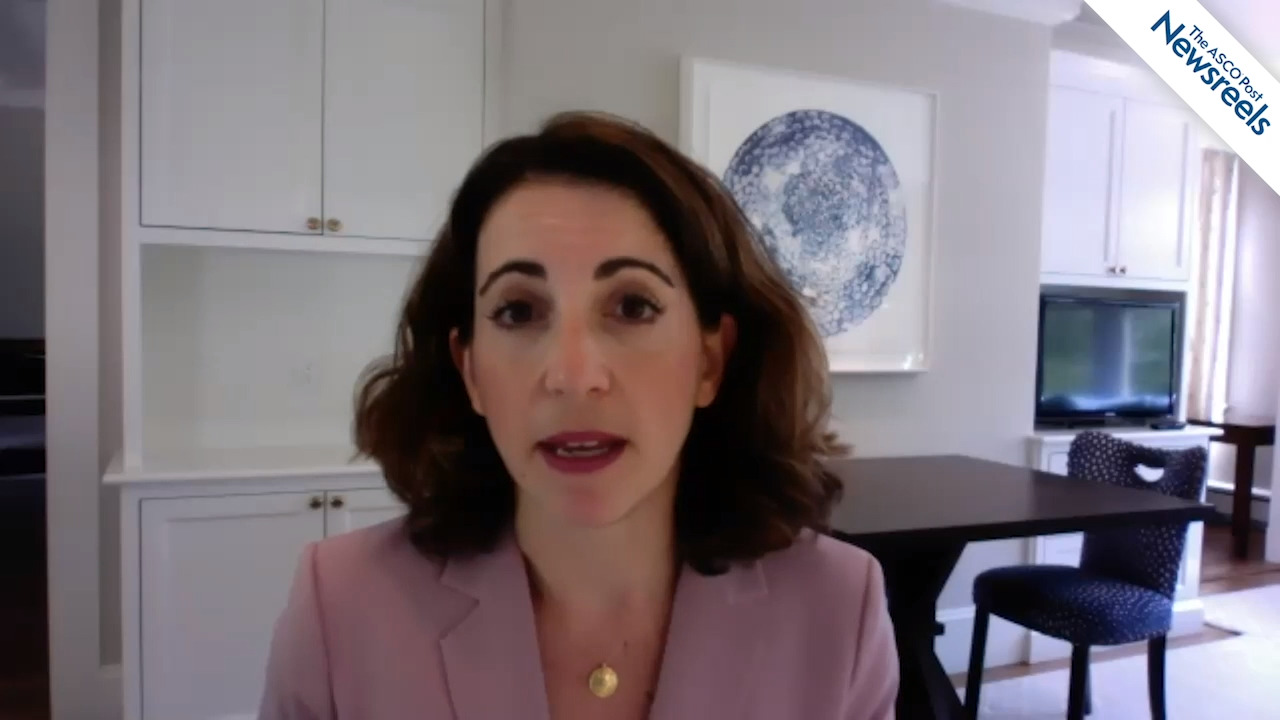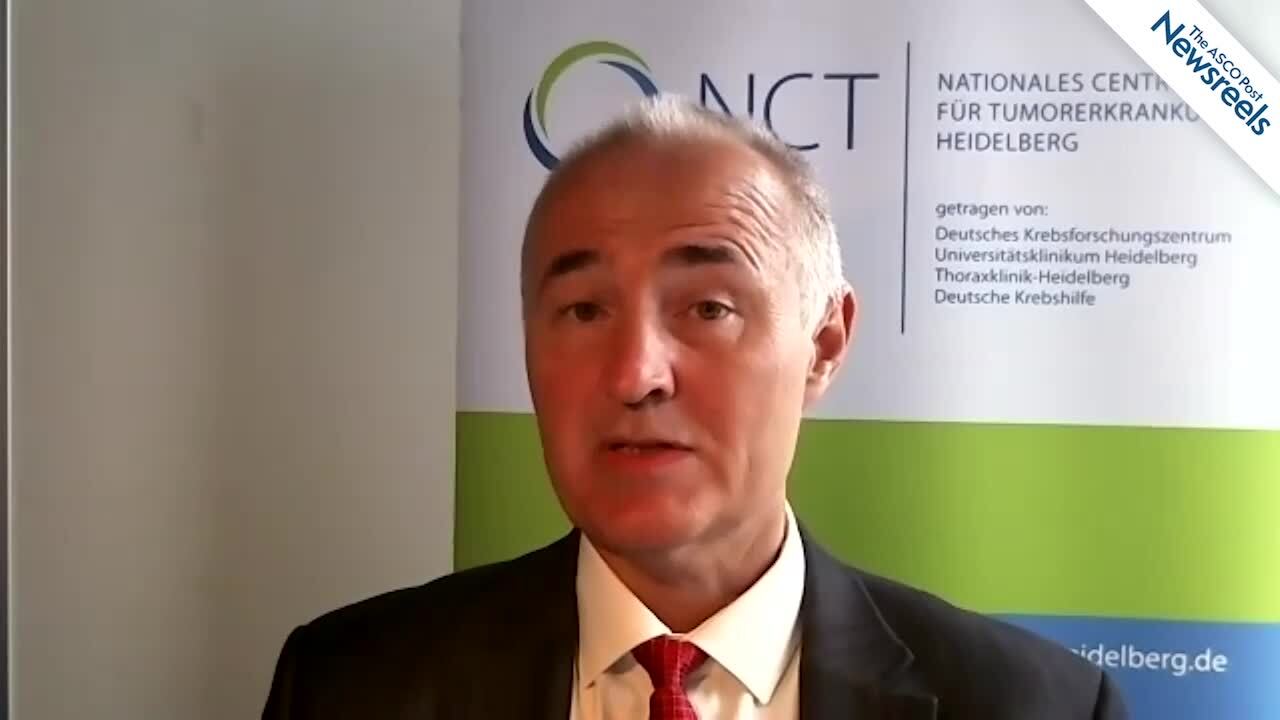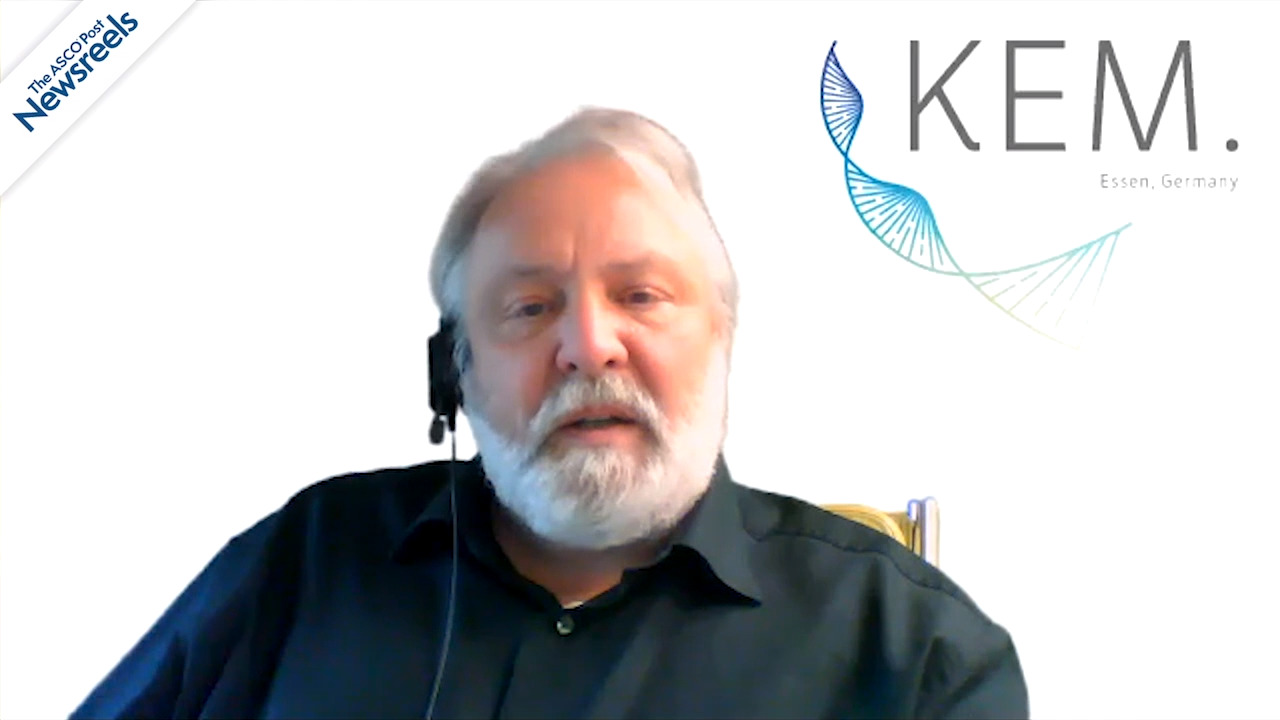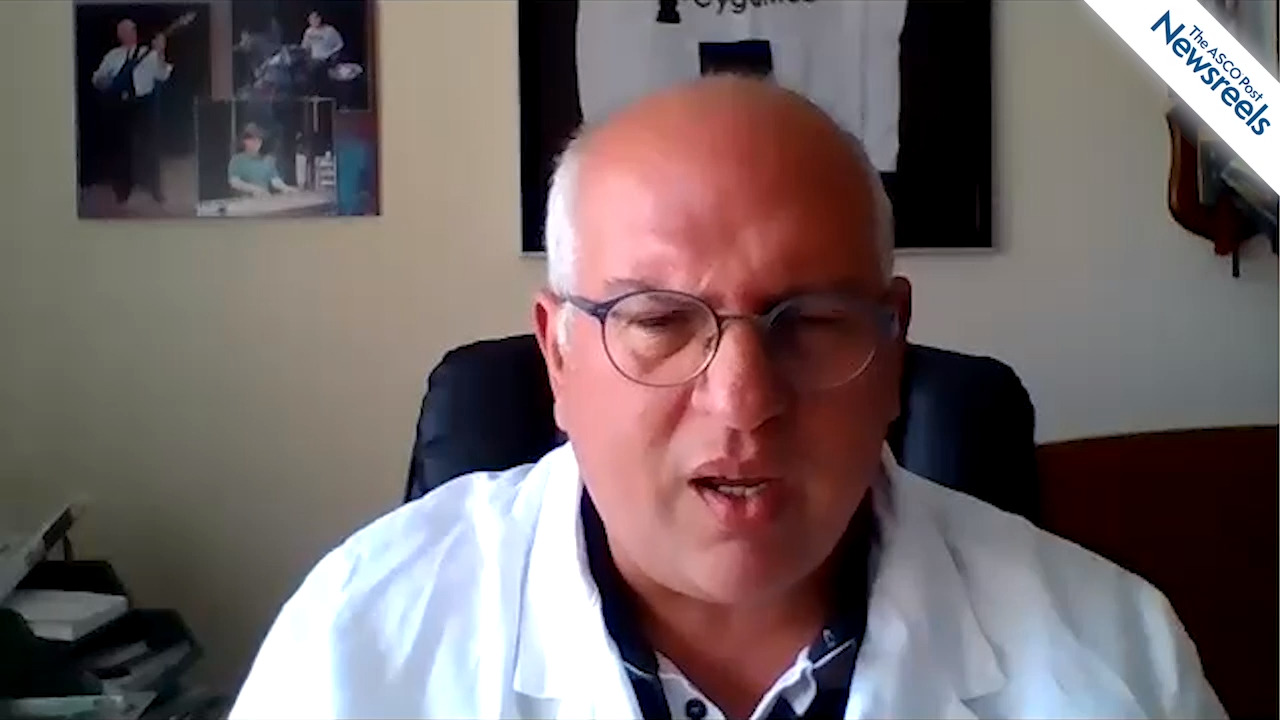Ezra E.W. Cohen, MD, on Head and Neck Cancer: Avelumab and Chemoradiotherapy in Locally Advanced Disease
ESMO Virtual Congress 2020
Ezra E.W. Cohen, MD, of the University of California, San Diego, discusses primary results of the phase III JAVELIN trial of locally advanced squamous cell carcinoma of the head and neck, in which the immune checkpoint inhibitor avelumab was combined with chemoradiotherapy followed by avelumab maintenance. Although the study results were negative, Dr. Cohen suggests other regimens that may prove to be effective (Abstract 910O).
The ASCO Post Staff
Erica L. Mayer, MD, MPH, of Dana-Farber Cancer Institute, discusses an initial analysis of phase III findings from the PALLAS trial, which suggested the benefits observed in the metastatic setting with palbociclib plus endocrine therapy did not translate into the earlier adjuvant setting for patients with hormone receptor–positive, HER2-negative breast cancer. Long-term follow-up is ongoing (Abstract LBA12).
The ASCO Post Staff
Andreas Schneeweiss, MD, of the Heidelberg University Hospital and German Cancer Research Center, discusses phase III survival data from the GeparOcto trial, which compared the neoadjuvant chemotherapy intense dose-dense EPC (epirubicin, paclitaxel, and cyclophosphamide) with weekly paclitaxel and liposomal doxorubicin (with or without carboplatin in triple-negative breast cancer) for patients with high-risk early breast cancer (Abstract 160O).
The ASCO Post Staff
Alexander M. Eggermont, MD, PhD, of the Princess Maxima Center for Pediatric Oncology, discusses final results of the phase III EORTC 1325-MG/Keynote 054 trial, which confirmed a sustained recurrence-free survival benefit of pembrolizumab vs placebo in patients with resected high-risk stage III melanoma, as well as a decrease in the incidence of distant and locoregional recurrence (Abstract LBA46).
The ASCO Post Staff
Andreas du Bois, MD, PhD, of Kliniken Essen Mitte, discusses the NORA and INOVATYON studies of patients with recurrent ovarian cancer, detailing the findings for women in China with platinum-sensitive disease and women internationally who received trabectedin and pegylated liposomal doxorubicin (PLD) followed by platinum at disease progression vs carboplatin and PLD after disease progression (Abstract LBA29 and LBA30).
The ASCO Post Staff
Paolo A. Ascierto, MD, of the Istituto Nazionale Tumori, discusses phase II results on progression-free survival for patients with advanced melanoma in the SECOMBIT study, whose aim is to evaluate the different sequencing of a BRAF inhibitor (encorafenib) plus a MEK inhibitor (binimetinib) with ipilimumab plus nivolumab (Abstract LBA45).





